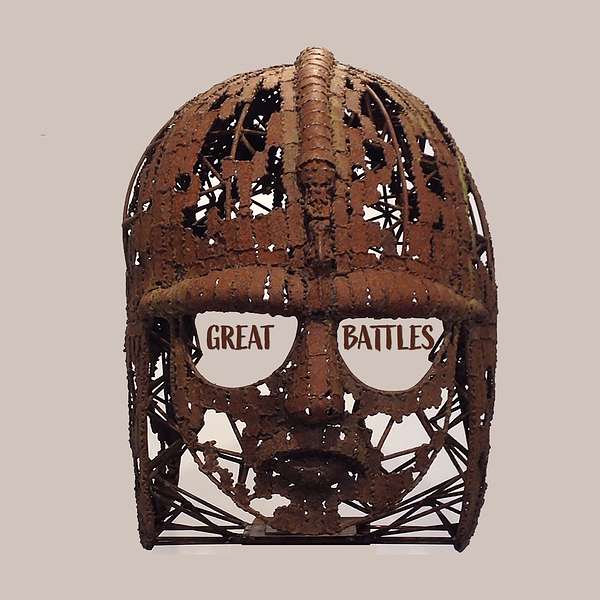
Great Battles in History
Welcome to Great Battles in History. This podcast explores some of the most famous and most important battles in world history from ancient times to the Second World War. Each episode dives deeply into a single battle, investigating its origins, the course of combat, and the outcomes. We will examine the contending forces, including some of history’s most celebrated armies, navies, and air forces. We will meet great captains like Hannibal Barca, Saladin, Napoleon, and Chester Nimitz. We will also delve into the experiences of the soldier at the sharp end: the Spartan hoplite at Thermopylae, the English longbowman at Agincourt, the mounted samurai at Nagashino, the Soviet tanker at Kursk. Battles are regarded as events that change the course of history; the most important have been described as decisive. We will come to question this idea, for, as we’ll see, while a handful of battles do qualify as momentous, epochal turning points, most others—including not a few widely considered decisive—changed very little if anything at all. Finally, battles are more than just exercises of pure strategy and tactics; they are artifacts— creations of the political, social, economic and cultural forces of their times. To investigate great battles is to open up history in its widest sense.
Great Battles in History
Cannae, Part 2-Carthage and Rome
•
Darryl Dee
•
Season 1
•
Episode 2
By the third century BCE, the Western Mediterranean was dominated by two great republics, Carthage and Rome. From its matchless position on the coast of present-day Tunisia, Carthage dominated commerce in the Western Mediterranean basin. Its navy ruled the waves from the straits of Sicily to the Pillars of Hercules. It also ruled a considerable land empire that included much of North Africa, Sicily, and Sardinia. Rome was a fast-rising star—dynamic, vigorous, and aggressively expansionist. It had just recently imposed its dominion over most of Italy. Traditionally, Carthage and Rome have been portrayed as diametric opposites. In reality, they had much in common.